How can we make our societies more inclusive for people with disabilities and women? HANDS’ American and Egyptian Professional Fellows Program participants are currently exploring this topic during an exchange visit to Egypt–as did our American delegation during last month’s exchange to Morocco and Tunisia.
HANDS’ Professional Fellows Program engages young development professionals from the Middle East and North Africa (MENA) with American NGO leaders focused on women’s empowerment and rights for people with disabilities.
This past January, five Americans who had hosted and mentored our MENA region fellows participated in a reverse exchange to see the fellows’ work on the ground in Morocco and Tunisia and to continue building skills and relationships to support the empowerment of vulnerable communities.
Members of the American delegation who participated in this exchange included:
- Kenneth Davis, Business Development Coordinator, Aid to Artisans, Creative Learning
- Anja Post, Employment Specialist and Vocational Rehabilitation Counselor, Mainstay and Seattle Central College
- Maria Presley, Technical Advisor, Civil Society and Peacebuilding Department, FHI 360
- Jacqueline Priego, manager of Brand Experience and Communications, YWCA Metropolitan Chicago
- Belinda Wiley, Vice President, Community Support Services, National Children’s Center
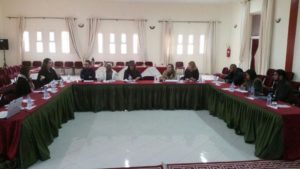
In each country, our American delegates received briefings on the situation for women and people with disabilities from our local fellows and partner organizations.
These events strengthened relationships among American and Moroccan participants to increase knowledge-sharing, intercultural understanding, and professional linkages. The trip in Morocco was organized with HANDS’ wonderful Moroccan partner organizations: The Association Ennakhil and Collectif Pour la Promotion des Droits des Personnes en Situation de Handicap.
One of the many impactful experiences was meeting a network of women artisans who have empowered themselves by forming a coalition to produce and market their handicrafts.
After a week of engaging with local civil society leaders in Morocco, our delegation was off on the second leg of the trip: to Tunisia!
There, our two very experienced Tunisian partner organizations, The Center of Arab Women for Training and Research (CAWTAR) and the Federation of Tunisian Associations Working in the Field of Disability (FATH), accompanied our group to conferences, panels, and networking opportunities throughout the country. It was especially inspiring to witness how HANDS’ fellows are assuming leadership roles in their organizations and furthering their impact in vulnerable communities.
One memorable meeting was with a group of youth in Sousse who had formed a local association to engage their peers in community-building activities that counter isolation and extremist ideologies.
Meeting with female members of parliament in both countries gave our American participants an understanding of the impressive rates of women in both Moroccan and Tunisian Parliaments. Women currently hold 21% of seats in Morocco’s parliament and 33% in Tunisia’s, the highest proportion in the Arab world.
Our American delegation was also eager to hear updates from HANDS’ MENA-region fellows on their current projects and to brainstorm ideas for any current challenges they were facing.
These return exchanges are beneficial to both our American and MENA region participants, who learn a lot from each other and find avenues for continued professional cooperation after these experiences.
Another Professional Fellows Program return exchange trip is currently unfolding in Egypt with updates to come soon!
This invaluable knowledge-sharing between professionals in the MENA region and U.S. would not be possible without the support of the U.S. Department of State’s Bureau of Educational and Cultural Affairs and other generous HANDS donors. We’re so grateful for their investment in the next generation of leaders who are working hard to improve the quality of life for women and people with disabilities!
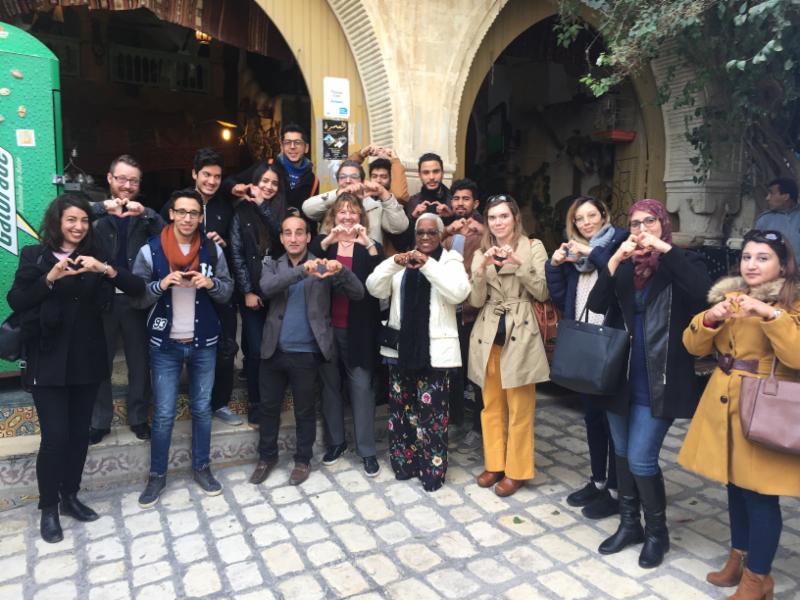
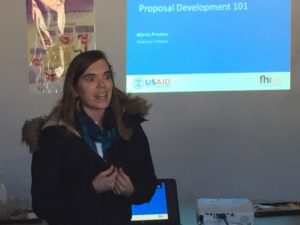
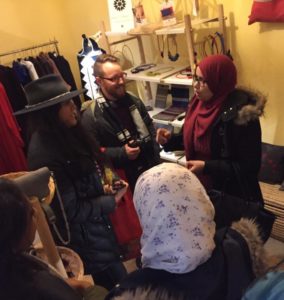
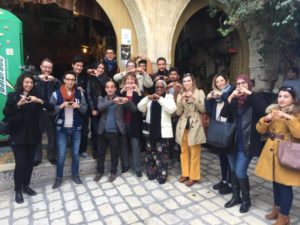
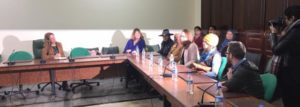
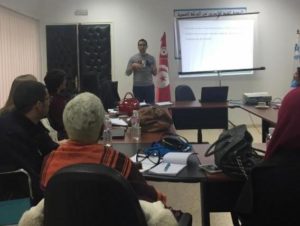
No Comments to "American Delegation in MENA Region"